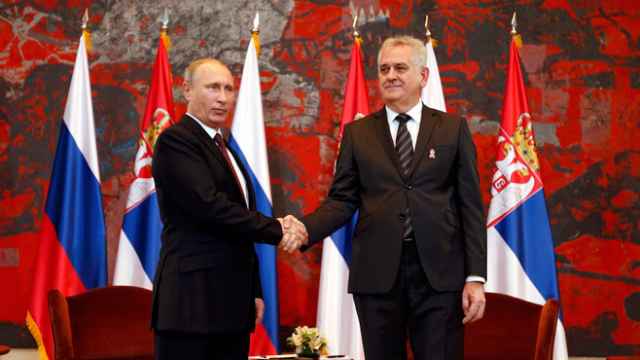Serbia, which owes more than $200 million for gas supplies from Russia, said Friday it had received less gas this week and was set for talks on rescheduling its payments.
"Serbia has been receiving 3.2 million cubic meters (mcm) of gas per day instead of 4.5 mcm, which accounts for a 28 percent reduction," Energy Minister Aleksandar Antic was quoted as saying by Tanjug news agency.
He said the reason behind the lower volumes was Serbia's debt of $224 million to Russian gas exporter Gazprom.
Antic said that he would meet with Russian partners next week to discuss debt rescheduling, adding that the first tranche of $100 million could be paid by the end of this year.
In late September, Dusan Bajatovic, chief executive of Serbia's main gas distributor Srbijagas, said that Russian gas shipments were down.
Gazprom had said it was unable to meet rising gas demand from Europe while it built up stockpiles ahead of winter.
Serbia's energy sector is already under strain after flooding in May inundated a coal mine supplying its biggest power plant.
The country consumes about 2.5 bcm of gas per year and relies mainly on Russian supplies via Ukraine and Hungary.
The Banatski Dvor underground gas depot has been filled to its capacity of 450 mcm, which is enough to cover household consumption for about three months.
A Message from The Moscow Times:
Dear readers,
We are facing unprecedented challenges. Russia's Prosecutor General's Office has designated The Moscow Times as an "undesirable" organization, criminalizing our work and putting our staff at risk of prosecution. This follows our earlier unjust labeling as a "foreign agent."
These actions are direct attempts to silence independent journalism in Russia. The authorities claim our work "discredits the decisions of the Russian leadership." We see things differently: we strive to provide accurate, unbiased reporting on Russia.
We, the journalists of The Moscow Times, refuse to be silenced. But to continue our work, we need your help.
Your support, no matter how small, makes a world of difference. If you can, please support us monthly starting from just $2. It's quick to set up, and every contribution makes a significant impact.
By supporting The Moscow Times, you're defending open, independent journalism in the face of repression. Thank you for standing with us.
Remind me later.





